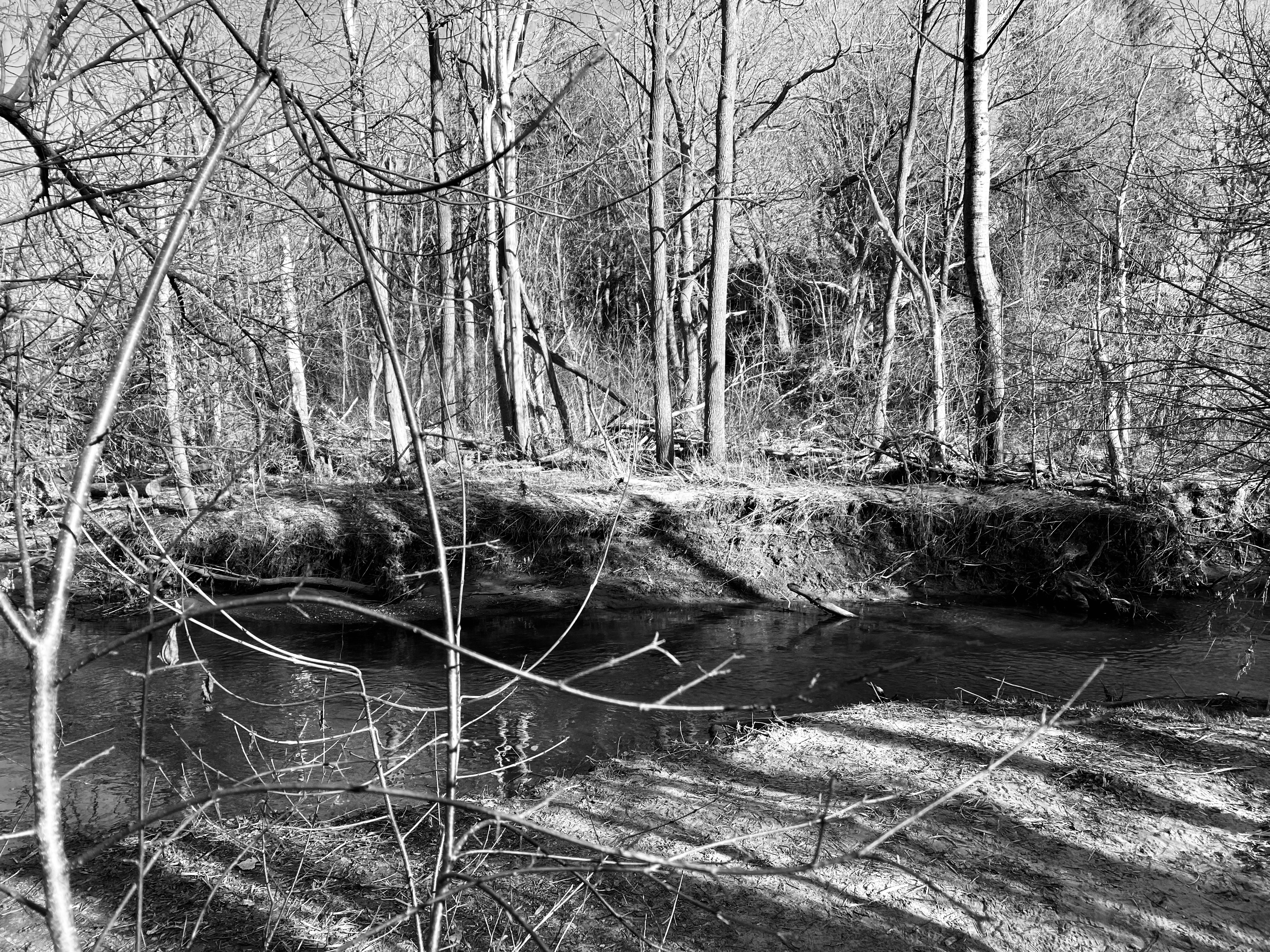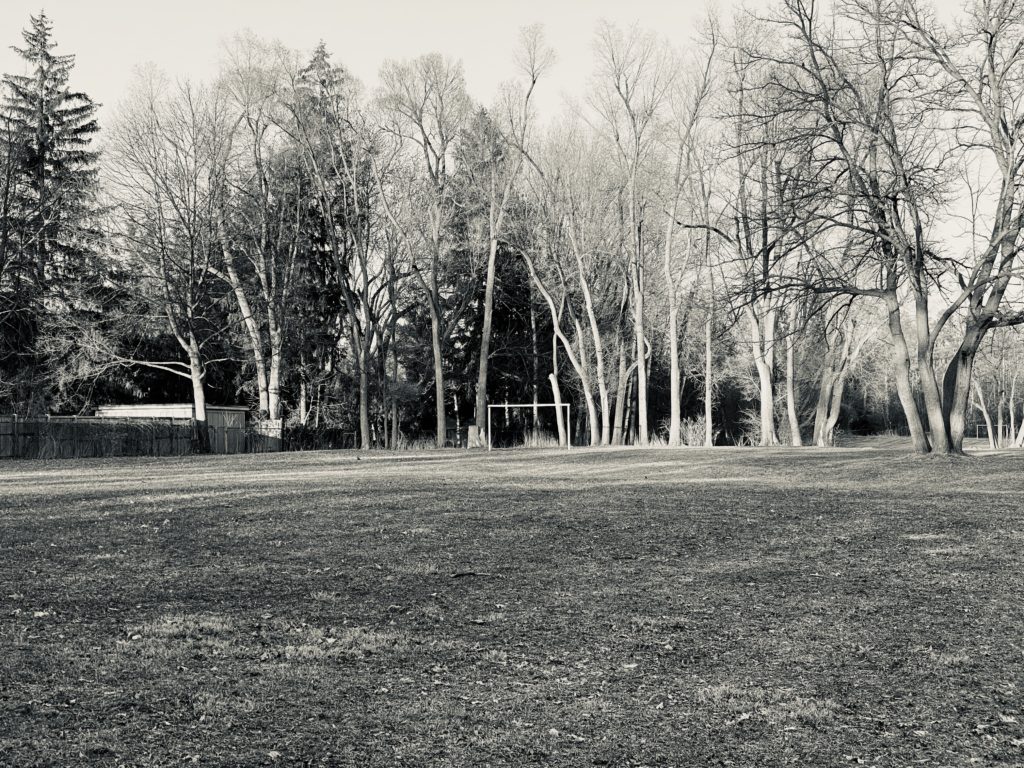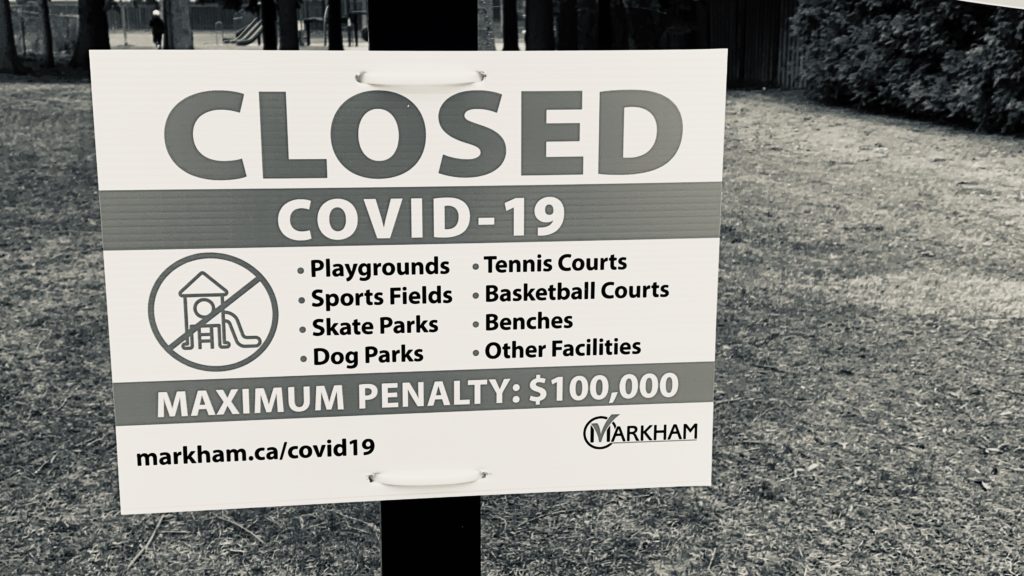Pandemic Journal Part I—The Age of Ghosts

It sounded as if the streets were running,
And then the streets stood still
-Emily Dickinson
The streets outside the house have been emptied. If this is a sign of the apocalypse, the world will end not with a bang or a whimper, but with a jerking brake on the machine of society. Life slows to a withering stop, without trumpets to signal the end—or beginning—of anything.
Every venue to gather as people have been closed. Every office, store, restaurant, cafe, shop, and hall have been shuttered. Those places where we talk, laugh, pray, and marry have left us. Life is verbless now, bereft of activity and action.
My only distraction outside of my home is walking. I see my neighbours on occasion. Solitary flaneurs like myself, we cross paths without greeting, maintaining necessary if awkward distances if we stray too close. To be civil in the age of COVID-19 means to be apart, living with the assumption that any one of us may be tainted by disease. These walks are not part of an exercise regimen. They are my way of sanitizing my mind from the darkness of this moment. In my younger years, I longed to be away from these streets, searching for better places to live, and better ways of living. I see the advantages of living here now. The atomization of suburban life makes social distancing relatively easy.
I tread the same paths repeatedly, places I’ve crossed over since childhood. On occasion, I find myself walking through the grounds of my former elementary school. The building no longer exists; recently demolished, only rubble remains, fenced off from the public as if protecting the neighbourhood from the sadness of the school’s erasure. You can still access fields behind the school’s remnants. These open playgrounds, once overly familiar, now seem completely foreign, landscapes of a half-forgotten past.

Getting marooned in your earlier days is a mistake. The distance of years can be overwhelming, alienating one from the present. Life is meant to be lived with an awareness of the natural cycles of existence. These plague days have stopped all of that, revealing life’s absences more than its continuity. We live with the uncertainty of frozen time, prisoners serving a sentence with no known date of release, trapped in this age of ghosts. These are ghosts of the moments long dead, ghosts of connections buried by our personal histories.
Not all of these ghosts live in the past. We are haunted by the spectres of friends separated by a few roads, family separated by single flights. Our technology is insufficient to bridge the gap that pathogens have cleaved between us all. “Alone together” is a phrase I read to describe the sense of solidarity we must experience together, implying that physical distancing is a matter of space rather than a lacuna in our emotional lives. That we suffer together is a small comfort—how can we reach each other with any depth in this enforced separation? How can texts or video calls be anything more than facsimiles of a relationship? We are told this state of existence will be a necessity for weeks, likely months, perhaps a year. Indefinite “lockdowns” will become our way of life. However brief this period may be, we will be forced to become accustomed to isolation.
Perhaps it’s always been this way. Make an accounting of all those you’ve known. Friends, family, classmates, those you’ve loved and liked, those you’ve hated. The panoply of people we’ve encountered and lost is endless. The emotional depths we’ve invested and eventually wasted cannot be quantified. Our memories can scarcely retain those numbers. To be separated by space and time to the people who have sculpted our lives is our natural condition. Losing others is a cognitive necessity. Now, through public health advice and government decree, losing others is also good citizenship.

I typically return home in the early evening, occasional cars passing me as I cross lovingly cultivated lawns. I feel awed by the sense of freedom my solitude offers—awed, and benumbed by it. In the hollowness of the streets, I only have my ghosts travelling with me. They keep no distance. The further I walk, the closer they come. They are faces of the past, and spectres of the present. All who knew me. All who’ve valued my presence in their lives. All who’ve forgotten me and who I have forgotten. All who’ve retained a foothold in my memory.
I take my ghosts with me inside my house. One day, I imagine toasting them in the protective cocoon my home provides me, hailing their presence in my solitude. If that toast could be heard, reverberating in silence, it would acknowledge how much I am indebted to my ghosts, telling them how much they form the sum of all that I am.